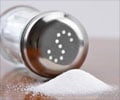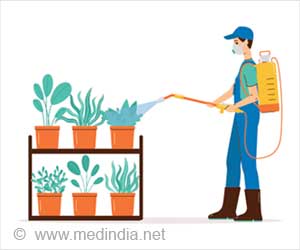Tribal women of Padampur, a small village in the Koraput district of Orissa, don't have any formal education but they not only know all about the benefits of using iodised salt, they even earn their livelihood by selling it in the neighbouring villages.
These villagers were blissfully ignorant about iodised salt until one day they attended an orientation workshop on iodine deficiency disorders (IDD) and salt testing, reports Grassroots Features.For Parbati Nayak, 50, it was a nightmarish experience to bring up her children, especially a mentally retarded son. He has been her liability for the last 20 years and she is worried that after her death there is nobody to take care of him.
In one self-help group (SHG) meeting, a staff member of the United Nations Children's Fund (Unicef) revealed that iodine deficiency in a mother might lead to mental retardation in the child. Nayak realised that this might be the reason for her child's mental illness. She began a door-to-door campaign and asked people to use iodised salt so that they don't have a similar experience.
"A pinch of salt can change your life. If somebody had told me about it earlier perhaps the life of my children would have been different. I don't want others to do the same mistake," Nayak said.
Dana Ambapadia, a 34-year-old tribal woman of the same village, has also been unfortunate. Her two children died before they were born. During her third pregnancy she decided not to take any chances and went for a regular check-up in the local health centre. She was shocked when she came to know that the salt she is using might have been one of the reasons for her miscarriages. She started using iodised salt though it cost her a little more than the ordinary one and delivered a healthy baby six months later.
"It was a miracle. If I had known earlier I could have saved my two kids," she said.
Advertisement
Due to the initiatives taken by Unicef, now all 20 members of the Sivani SHG are aware of the harmful effects of IDD and salt testing. According to a study conducted by MKCG medical college, Barhampur, prevalence of IDD in Koraput district is around 22.4 percent. This is five times more than the maximum limit of four percent as per WHO guidelines and is to be considered a public health problem.
Advertisement
On July 21, 2006, they bought 50 kg of iodised salt from Jeypore for the first time. The bag of salt was sold in less than two hours and the members earned a profit of Rs. 125. Encouraged by the response, the SHG decided to take further risk. The president and secretary of Sivani, Kamala Khara and Pankaja Mohanty, placed orders for the first consignment of four metric tonnes of iodised salt.
Sivani has now involved 50 other SHGs both within and outside Koraput. Khara, president of Sivani said: "We took a huge risk when we ordered such a huge amount of salt. But since we were simultaneously promoting the use of iodised salt, women started demanding the salt and all our stocks were sold. We are now planning to procure more salt from Andhra Pradesh."
The government itself is not averse to the idea. Usha Padhi, director of Mission Shakti, said: "Though officially non-iodised salt was banned in the area, its sale was quite rampant. These SHG members brought about the real change after they stopped the sale of non-iodised salt even in local haats. We are now planning to give the charge of marketing salts in other government programmes to these SHGs so that they can make more profit."
Source-IANS
SRM/S






